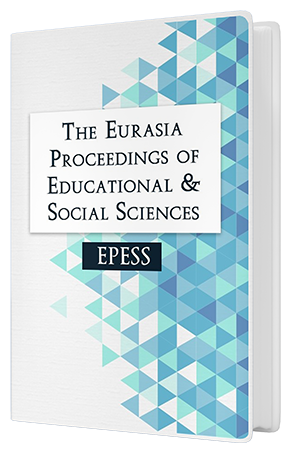FOSTERING PRIMARY SCHOOL STUDENTS’ METACOGNITION USING PROJECT-BASED LEARNING
Keywords:
metacognition, physics, project-based learning, primary schoolAbstract
Primary school students have difficulties in understanding the physical content due to insufficiently developed abstract reasoning skills and metacognition. Metacognition refers to the processes used to plan, monitor, and assess one’s understanding and performance. It is "cognition about cognition", "thinking about thinking", or "knowing about knowing". Metacognition includes a critical awareness of one’s thinking and learning, as well as awareness of oneself as a thinker and learner. There are three distinctive components of metacognition: (1) metacognitive knowledge, (2) metacognitive regulation and (3) metacognitive experiences. Since metacognition includes knowledge about when and how to use particular strategies for learning or for problem solving it is very important in learning physics. Project Based Learning can help fostering primary school students’ metacognition. Project Based Learning enables students to gain knowledge and skills by investigating and responding to challenging question or problem. Since the projects are focused on student learning goals, including skills such as critical thinking, problem solving and self-management, while working on projects students must use metacognitive activities. Also project design includes that students make decisions how they work on a project and they reflect on learning, the effectiveness of their inquiry and project activities; they discuss the quality of their work, obstacles and how to overcome them. Because of that students benefit in respect of mentioned metacognitive components by the use of project-based learning.Downloads
Published
Issue
Section
License
Copyright (c) 2016 The Eurasia Proceedings of Educational and Social Sciences

This work is licensed under a Creative Commons Attribution-NonCommercial-ShareAlike 4.0 International License.
The articles may be used for research, teaching, and private study purposes. Any substantial or systematic reproduction, redistribution, reselling, loan, sub-licensing, systematic supply, or distribution in any form to anyone is expressly forbidden. Authors alone are responsible for the contents of their articles. The journal owns the copyright of the articles. The publisher shall not be liable for any loss, actions, claims, proceedings, demand, or costs or damages whatsoever or howsoever caused arising directly or indirectly in connection with or arising out of the use of the research material. All authors are requested to disclose any actual or potential conflict of interest including any financial, personal or other relationships with other people or organizations regarding the submitted work.




